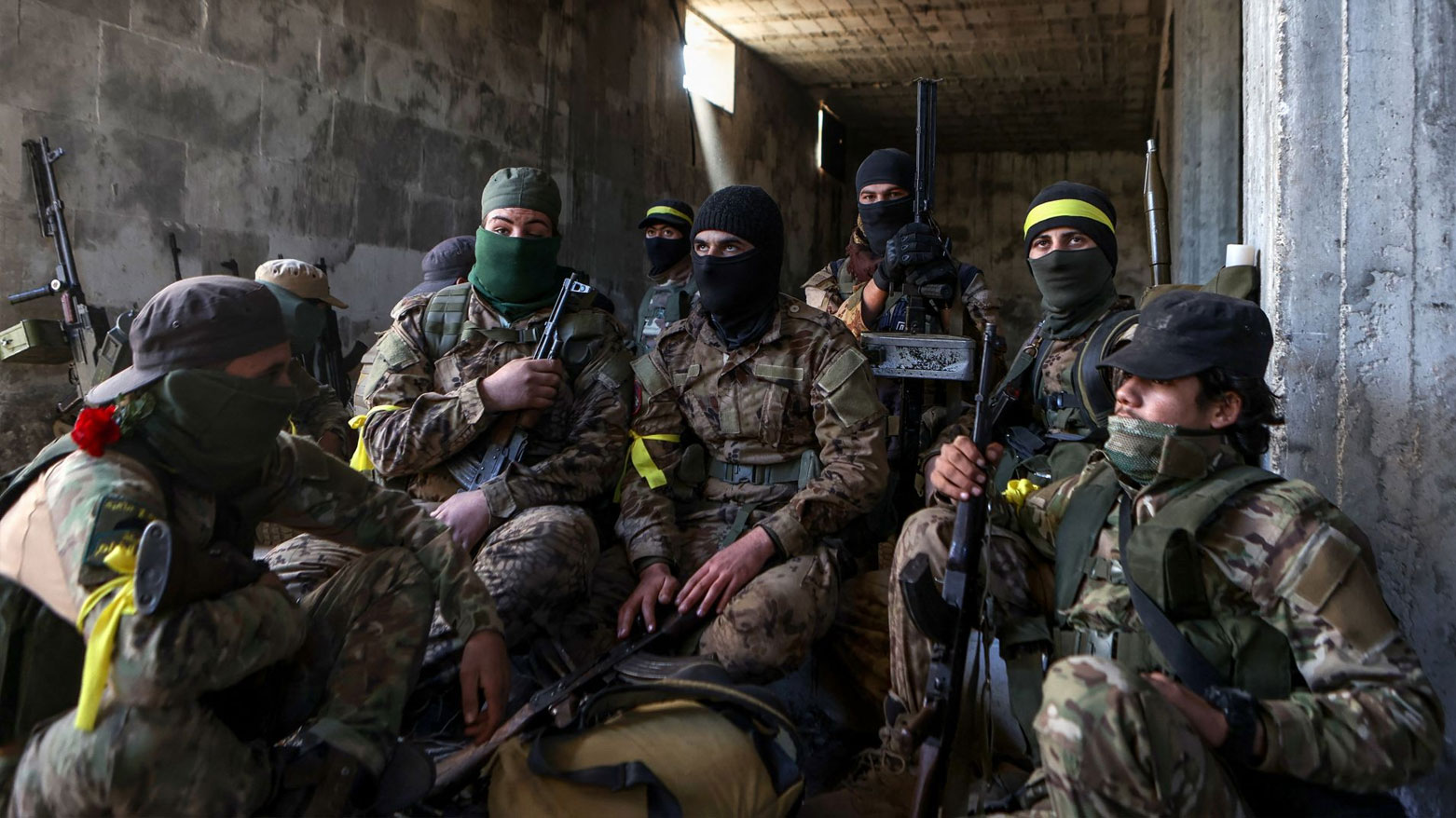UK Removes Syria’s HTS from Terror List After Assad’s Fall
The UK has removed Hayat Tahrir al-Sham (HTS) from its terror list, following the group's overthrow of Bashar al-Assad and formation of Syria's new government. London stated the move aims to facilitate cooperation on dismantling chemical weapons and stabilizing Syria.

ERBIL (Kurdistan24) – The United Kingdom on Tuesday officially removed Syria’s Hayat Tahrir al-Sham (HTS) from its list of banned “terrorist” organizations, marking a major shift in Western policy toward Damascus after the group ousted Bashar al-Assad in December and assumed control of the Syrian government.
The decision follows Washington’s earlier move in July to revoke HTS’s terrorist designation, reflecting a coordinated international recalibration following Assad’s fall and the subsequent emergence of a transitional administration in Damascus.
In a joint statement, the British Foreign and Interior ministries said, “The government’s decision to remove Hay’at Tahrir al-Sham (HTS) from the list of proscribed terrorist organizations will mean closer engagement with the new Syrian government.”
According to the statement, the removal order, which has been laid before the UK Parliament, aims to facilitate cooperation with Syrian authorities to “eliminate the Assad regime’s chemical weapons program” and support stabilization efforts after decades of war and repression.
From Al-Qaeda Affiliate to Syria’s New Power Center
HTS, once known as the Al-Nusra Front, was originally the Syrian branch of Al-Qaeda. It formally cut ties with the global jihadist network in 2016 and embarked on a campaign to rebrand itself as a Syrian nationalist movement. The UK had proscribed the group in 2017 due to its earlier affiliation with Al-Qaeda.
Under the leadership of Ahmed al-Sharaa, HTS gradually expanded its control over Syria’s northwest province of Idlib, where it established a civil administration amid accusations of repression and rights abuses against dissenters. However, its military and political trajectory shifted dramatically last December when an armed coalition led by HTS overthrew Bashar al-Assad, ending nearly five decades of authoritarian rule by the Assad family.
Following the regime’s collapse, the new authorities announced the dissolution of all armed factions, integrating groups such as HTS into the country’s emerging security institutions, including a newly formed national police force.
Western Engagement with the New Damascus
Since taking power, Syria’s interim leadership under Ahmed al-Sharaa — now serving as interim president — has sought to normalize relations with the international community. Sharaa has met with U.S. President Donald Trump and French President Emmanuel Macron in recent months as part of efforts to consolidate legitimacy and secure international support.
Britain’s then-Foreign Minister David Lammy visited Damascus in July, announcing the re-establishment of full diplomatic relations more than a decade after the UK severed ties amid the Syrian civil war. “This marks the beginning of a new chapter,” Lammy said during the visit, signaling London’s readiness to reengage with Syria’s new administration.
The UK’s move also builds upon earlier steps taken in April to lift sanctions on Syria’s interior and defense ministries, as well as several media and intelligence bodies, in an effort to support institutional restructuring under the post-Assad government.
A Turning Point After Half a Century
The developments mark a historic reversal in British foreign policy. In 2011, the UK was among the first nations to recognize rebel factions as the legitimate representatives of the Syrian people after Assad’s violent suppression of pro-democracy protests. Seven years later, it participated alongside the United States in airstrikes targeting Assad’s chemical weapons facilities following a suspected poison gas attack.
Now, as HTS transitions from a proscribed group to a recognized governing entity, London’s decision underscores a new diplomatic reality: engagement with Syria’s emerging leadership is being prioritized over isolation.
With Assad’s downfall, Syria stands at the threshold of a new political order — one defined not by autocracy or insurgency, but by the challenge of rebuilding legitimacy after years of war, division, and international isolation.